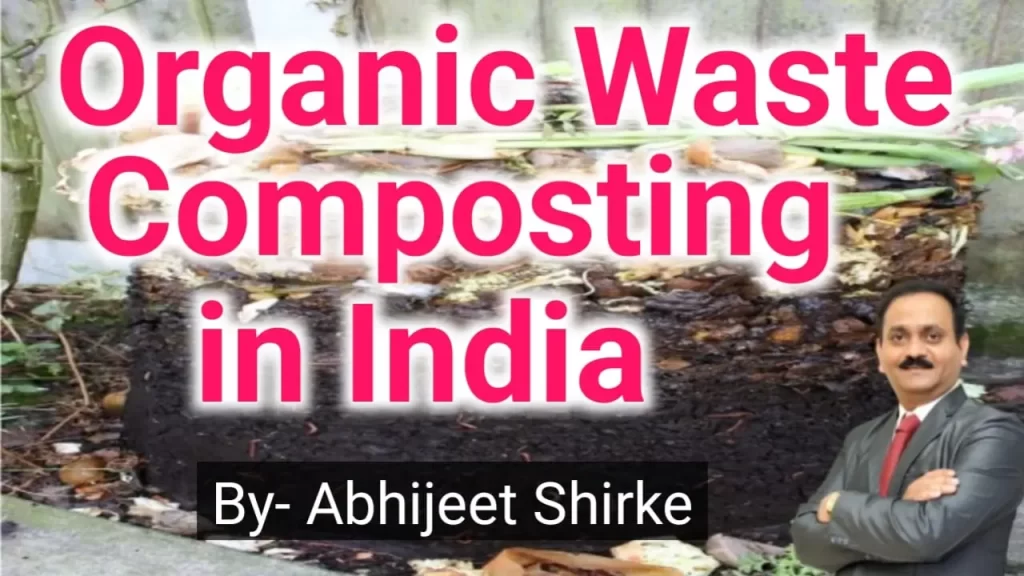
India is a land of diverse cultures, traditions, and landscapes, but it also faces significant environmental and agricultural challenges. One of the most pressing issues is the management of organic waste. Organic waste, including kitchen scraps, agricultural residues, and municipal solid waste, accounts for a substantial portion of the waste generated in the country. However, organic waste composting has emerged as a sustainable solution to address both environmental and agricultural concerns in India.
The Need for Organic Waste Management in India
India’s population of over 1.3 billion people generates a vast amount of waste, with organic waste constituting a significant proportion. The improper disposal of organic waste leads to several environmental and health problems. These include soil and water pollution, the emission of greenhouse gases (GHGs) such as methane, and the proliferation of disease vectors like flies and rats. Additionally, the open dumping of organic waste in landfills contributes to the creation of unsightly and unhygienic dumpsites, which negatively impact local communities.
In the context of agriculture, the depletion of soil fertility due to the inadequate recycling of organic matter poses a severe threat to food security. Indian agriculture heavily relies on chemical fertilizers, which are unsustainable in the long term. The excessive use of synthetic fertilizers has resulted in soil degradation, reduced crop yields, and contamination of groundwater. Organic waste composting offers a sustainable alternative by converting organic waste into nutrient-rich compost, thereby improving soil health and reducing the dependency on chemical inputs.
The Advantages of Organic Waste Composting
1. Environmental Benefits:
- Reduces Greenhouse Gas Emissions: Organic waste composting helps mitigate climate change by diverting organic waste from landfills where it would otherwise decompose anaerobically, producing methane – a potent GHG. Composting converts organic matter into stable, carbon rich compost, reducing GHG emissions.
- Soil and Water Conservation: Compost enhances soil structure, moisture retention, and fertility, reducing soil erosion and water runoff. This helps protect watersheds and promotes sustainable agriculture.
- Decreases Landfill Pressure: Organic waste composting reduces the burden on landfills, extending their lifespan and minimizing the associated environmental and health hazards.
2. Agricultural Benefits:
- Improves Soil Health: Compost is a valuable source of organic matter, essential nutrients, and beneficial microorganisms. It enriches the soil, enhancing its ability to support healthy plant growth.
- Reduces Chemical Fertilizer Dependency: Farmers can reduce their reliance on synthetic fertilizers by incorporating compost into their agricultural practices, thereby saving costs and reducing the environmental impact.
- Increases Crop Yields: Compost application leads to increased crop yields and improved crop quality, contributing to food security and economic well being.
3. Economic Benefits:
- Job Creation: The establishment and operation of organic waste composting facilities create employment opportunities, particularly in rural areas.
- Cost Savings: Local Governments can save on waste transportation and land filling costs by promoting composting at source.
Challenges and Solutions
Despite the numerous advantages of organic waste composting, several challenges hinder its widespread adoption in India:
- Lack of Awareness: Many Indians remain unaware of the benefits of composting and the methods involved. Public awareness campaigns and educational programs can address this issue.
- Infrastructure and Technology: Insufficient infrastructure and technology for large scale composting facilities and decentralized composting systems need to be developed.
- Policy and Regulation: India requires robust policies and regulations to incentivize composting, including financial incentives, waste segregation mandates, and quality standards for compost products.
- Behavioral Change: Encouraging households, businesses, and municipalities to segregate organic waste at the source is crucial for the success of composting initiatives.
Organic waste composting represents a sustainable and holistic solution to India’s pressing environmental and agricultural challenges. It not only mitigates the adverse impacts of organic waste on the environment but also rejuvenates soil health and promotes sustainable agriculture. However, the successful implementation of composting programs in India requires concerted efforts from the Government, private sector, and civil society to address the challenges and promote awareness and participation. Embracing composting is not just an environmental choice but a strategic step towards a healthier and more sustainable future for India.